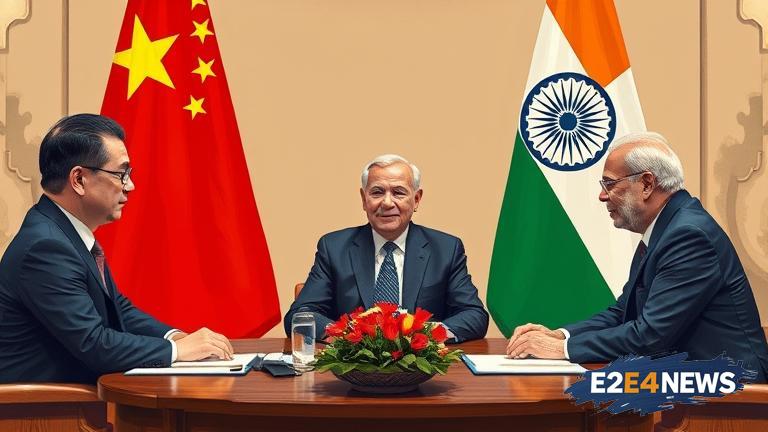The Troika talks between China, Russia, and India have been revived after a decade-long pause, marking a significant development in the trilateral relationship. The talks, which were first initiated in 2002, aim to promote cooperation and coordination among the three nations on various global issues. The revival of the Troika talks is seen as a strategic move by the three countries to counterbalance the influence of the United States and other Western powers. China, Russia, and India have been increasingly cooperating on regional and global issues, including trade, security, and climate change. The talks are expected to focus on areas such as economic cooperation, counter-terrorism, and non-proliferation. The three nations have also been exploring ways to enhance their cooperation in the fields of energy, transportation, and technology. India, in particular, is keen to strengthen its ties with China and Russia, as it seeks to diversify its foreign policy and reduce its dependence on the United States. The Troika talks are also seen as an opportunity for the three nations to discuss and address regional security concerns, including the situation in Afghanistan and the South China Sea. China, Russia, and India have been critical of the United States’ unilateral approach to global issues and have been advocating for a more multipolar world order. The revival of the Troika talks is also expected to have implications for the Quadrilateral Security Dialogue (Quad), a grouping of India, the United States, Japan, and Australia. The Quad has been seen as a counterbalance to China’s growing influence in the Indo-Pacific region, and the revival of the Troika talks may undermine its effectiveness. The Troika talks are also expected to discuss the issue of terrorism, with the three nations sharing concerns about the threat posed by extremist groups. The talks may also explore ways to enhance cooperation on counter-terrorism efforts, including intelligence sharing and joint operations. Furthermore, the Troika talks are expected to focus on the issue of non-proliferation, with the three nations seeking to strengthen their cooperation on preventing the spread of nuclear and other weapons of mass destruction. The talks may also discuss the issue of climate change, with the three nations seeking to enhance their cooperation on reducing greenhouse gas emissions and promoting sustainable development. In addition, the Troika talks are expected to explore ways to enhance cooperation on trade and investment, including the promotion of regional trade agreements and the development of new transportation corridors. The revival of the Troika talks is also seen as an opportunity for the three nations to discuss and address global governance issues, including reform of the United Nations and other international institutions. The talks may also explore ways to enhance cooperation on humanitarian issues, including disaster relief and humanitarian assistance. Overall, the revival of the Troika talks marks a significant development in the trilateral relationship between China, Russia, and India, and is expected to have far-reaching implications for regional and global affairs. The talks are expected to promote cooperation and coordination among the three nations, and to address a range of global challenges, including terrorism, non-proliferation, and climate change. As the three nations move forward with the Troika talks, they are expected to face a range of challenges, including the need to balance their competing interests and to navigate the complexities of their trilateral relationship. Nevertheless, the revival of the Troika talks is seen as a positive development, and is expected to contribute to a more stable and secure regional and global environment. The talks are also expected to promote economic cooperation and development, and to enhance the three nations’ ability to address global challenges. In conclusion, the revival of the Troika talks between China, Russia, and India marks a significant development in the trilateral relationship, and is expected to have far-reaching implications for regional and global affairs.
